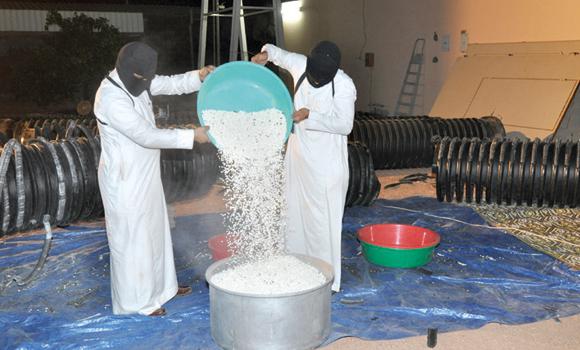Do you know where your medications come from? It might be from an international terrorist drug ring. A new study from the International Institute for Counter-Terrorism finds that terror group Hezbollah is “already involved in manufacturing and distributing counterfeit medications.” Institute director Boaz Ganor says that “Hezbollah is liable to use its production centers, international smuggling and distribution networks, and ties to international crime syndicates to insert deadly fake drugs into the pharmaceuticals market.”
Videos by Rare
There are a variety of ways terror groups get involved in the legal drug market. They may steal, repackage and sell licit drugs, either prescription or over-the-counter medications. Pharmaceutical workers may moonlight with terror groups, or work for them full time. Sometimes terrorists sell bogus or adulterated medications, and other times manufacture and market their own.
Hezbollah has been involved in the counterfeit drug market for several years. In 2006, Iran sent Hezbollah in Lebanon equipment to make Captagon, an amphetamine that was once used for treatment of Attention Deficit Hyperactiity Disorder (ADHD). Captagon has been banned in most countries since 1986, but it still widely used — and abused — in the Middle East. Engaging in this type of illicit trade within the Islamic world creates religious-ethical issues for the terrorists, but Hezbollah obtained a special religious dispensation, provided the pills did not go to Shiite Muslim areas but only to Sunni-majority countries.
Participation in the drug trade reaches the highest levels of the terror group. Lebanese authorities intercepted two machines for Captagon manufacture being sent to Sheikh Hussein al-Musawi, a Hezbollah parliamentarian and chemist. In February 2013, Lebanon charged Abdullatif Fneish, brother of Hezbollah official and Minister of State for Administrative Affairs Mohammed Fneish, with importing counterfeit drugs. The Fniesh drug ring is alleged to have imported and warehoused over 100 types of medications, for distribution within Lebanon and abroad.
Hezbollah has a well-developed global drug distribution and money-laundering network, based on years of involvement in trading heroin and cocaine. Last April, the U.S. Treasury Department blacklisted two Lebanese financial houses for aiding Hezbollah in hiding profits from the drug trade. Kassem Rmeiti & Co. for Exchange laundered nearly $30 million in drug proceeds in the last five years. The Halawi Exchange Co. helped move $220 million worth of used cars from the United States to Benin as a front to hide drug money. Hezbollah is also active in the West African diamond trade, through which it makes drug profits virtually untraceable.
Hezbollah is active in the Western Hemisphere, working in concert with Mexican drug cartel Los Zetas to distribute drugs in Latin America. Presumably they could tap into cartel drug distribution networks that reach into the United States. It would not be the first time Hezbollah penetrated our borders. The organization ran a cigarette smuggling ring out of Charlotte, North Carolina, for several years that generated tens of millions of dollars. And loosely-regulated internet drug sales present opportunities for terrorists to ply the drug trade through seemingly respectable front groups. Given this emerging frontier in narco-terrorism the time may come when you may not know whether your pharmacist is actually a terrorist.
James S. Robbins, Deputy Editor at Rare, is a former professor at National Defense University who specialized in counter-terrorism. He is the author of Native Americans: Patriotism, Exceptionalism, and the New American Identity. Follow him on Twitter @James_Robbins




One Comment
Leave a ReplyOne Ping
Pingback:NC bans automatic teacher raises based on advanced degrees & More | Jericho777's Blog